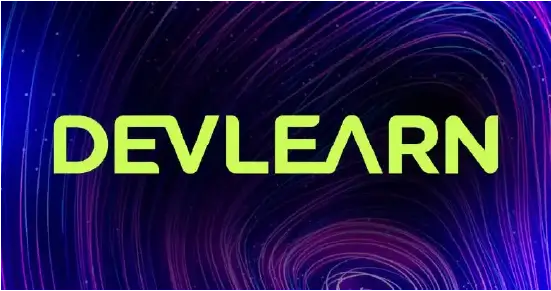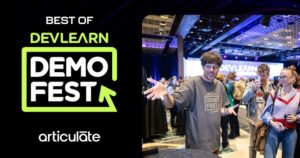Your cart is currently empty!

eLearning Guild Research: What Are the Benefits of Social Learning?

Many people think social learning is new. You know … you have a question and post it on Twitter and someone posts an answer. Or you have a discussion in one of your grad classes using a discussion forum. There are two issues with this way of thinking. The first one,as Ben Betts explains so humorously at the beginning of the new Guild researchreport, Social Learning: Answers to Eight Crucial Questions:
The eLearning industry has committed a crime. As brazen as any bank robber, we waltzed in andstole the phrase “social learning” from decades of psychological research. Weshow no signs of giving it back.
The meteoric rise of both social networking and social media meant that, somewhat inevitably, someone would stick “social” in front of “learning” and brand it asshiny and new.
Except social learning isn’t new. We’ve been learning from others since the beginning of time, as he clarifies in the report. The second problem, as Jane Bozarth explained in the Guild research report Social Media for Learning, is that there’s a difference between social media,the tools we use to support social learning, and social learning, how we learn from the people we work, play, and live with.
What are the benefits of social learning?
One of the most fascinating partsof the newest report is Betts’s section on the benefits of social learning, andI wanted to share a part of that section in this article. In the report, Betts discussesthe benefits of three broad areas of social learning—learning from others,learning in the presence of others, and learning in groups. I’ll spend most ofthis article analyzing his discussion of the benefits of learning from others.
Betts describes how socialpsychologist Albert Bandura observed that external influences play a major rolein the behaviors we choose to personally adopt. Bandura is the person whom wecan credit with the actual phrase “social learning.” He observed that we oftenwatch someone doing something, and then try it out for ourselves and do itpretty well. Think about it. We learn from watching others all the time, fromwatching other trainers’ techniques to watching dance moves. Little children doit all the time (and sometimes they mimic things we really don’t want them todo!).
Why does social learning work better than classroom instruction?
Betts explains why this works:
Learning fromanother person has … been shown to be vastly more effective than learning in alarger classroom group. Benjamin Bloom conducted his famous “2 sigma” study thatshowed that students learn much more effectively in a one-to-one environmentthan in the classroom. One-to-one tutoring in Bloom’s experiments was soeffective that it transformed a “C” student into an “A” student—a movement of 2standard deviations (or 2 sigma in statistical terms). This is a profoundfinding—we’re all capable of being “A” students when we learn from a tutor.
Almost a century earlier, Lev Vygotsky, a famous Russian educational psychologist, was studying the one-to-one relationships between apprentices and their masters when he coinedthe phrase “zone of proximal development” (ZPD) as an explanation of how thistutoring could be effective. Vygotsky suggested that the more experienced“master” provides help for the apprentice to grasp concepts just beyond theircurrent level of understanding—the “zone.” This concept involves a socialrelationship between two people where the master can adapt the tutoring to thestudent’s needs. We might think of this idea as “scaffolding”—providing the support for a learner to build up his or her own knowledge, one level at a time.
The ability to help someone learn through one-to-one relationships does notneed to come from a teacher, tutor, or expert. It only needs to be someone withmore knowledge and skill. As a result, it has profound implications inacademics and the workplace.
Consider for a moment the repercussions,for example, of helping people in your workplace get up to speed on a newsystem implementation. You could hold classes for people across the country. Thisis expensive, of course. But even more problematic, it’s likely that theclasses would be held prior to the implementation, and then people would forgetmuch of what they learned by the time the implementation occurred. Or you couldtry another scenario, which better fits the way people learn, as discussed inthe Guild research report Smart CompaniesSupport Informal Learning. You could keep a number of volunteers across theorganization well trained, then provide asynchronous training and performancesupport tools for the new system and allow these local volunteers to supportpeople at their site.
Why (and how) to use online social media for learning
Betts similarly describes thebenefits of learning in the presence of others. For example, people benefitwhen they can measure their own abilities against others’. (One important thingBen brought up is that people often think they are more skilled than they areuntil they are able to measure their skills against others. Interesting!) Similarly,a benefit of learning in groups is the ability to gain insights from the widergroup by sharing everyone’s skills and knowledge as needed. He describes casestudies where social learning encouraged individuals to take more initiativefor their own learning.
One of the best parts of thereport, I think, is where Betts helps readers think through some of thedownsides of social learning, such as worry about losing control, and how toovercome them. The case studies highlight the benefits accrued to a number oforganizations around the globe, and his implementation and measurement tools showhow to leverage these benefits for your organization.
October’s research report: HTML5
Judy Unrein’s research report on HTML5will be available later this month, and you won’t want to miss it! It will helpyou make sense of the hype over new authoring methods and tools, especially formobile learning. If you aren’t currently a paid Guild member, consider joiningso you can use these reports to improve your practice and make importantdecisions. If you have any questions or comments about the Guild researchreports, don’t hesitate to contact me at [email protected].







